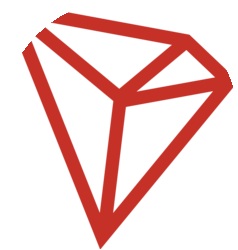Justin Sun Unveils TRON-Based Stablecoin with Gas-Free Transactions
TRX/USDT
$115,098,670.07
$0.2794 / $0.2751
Change: $0.004300 (1.56%)
+0.0047%
Longs pay
Contents
- Justin Sun, founder of Tron (TRX), has announced plans to develop a stablecoin that can be transferred back and forth without incurring gas fees.
- Sun stated that the gas fees will be “fully covered by the stablecoins themselves.”
- According to Sun, the stablecoin will launch first on the Tron blockchain and later expand to all blockchains compatible with Ethereum and the Ethereum Virtual Machine (EVM).
Justin Sun unveils gas-free stablecoin to revolutionize blockchain transactions.
Justin Sun’s Vision for a Gas-Free Stablecoin
Justin Sun, the visionary behind Tron (TRX), has propelled the cryptocurrency world into the spotlight with his recent announcement. He revealed plans to develop a unique stablecoin that will allow transactions without the burden of gas fees—a significant innovation in the blockchain space. According to Sun, these fees will be borne entirely by the stablecoins, thereby eliminating a major cost barrier.
Initial Rollout on Tron Blockchain
The initiative will initially take root on the Tron blockchain. “We foresee launching this service in the fourth quarter of this year,” Sun shared in his recent post. This service aims to level the playing field by enabling large corporations to deploy blockchain-based stablecoin services more effortlessly, driving forward the mass adoption of blockchain technology.
Expansion to Ethereum and EVM-Compatible Blockchains
Beyond Tron, the stablecoin is slated for deployment across Ethereum and other blockchains compatible with the Ethereum Virtual Machine (EVM). This cross-compatibility is expected to broaden the user base and functionality of the stablecoin, offering enhanced versatility in various blockchain ecosystems. While Sun has not divulged the technical specifics of how gas-free transfers will be managed, industry watchers are keenly anticipating further details.
Competitive Landscape: PayPal and Coinbase
This groundbreaking innovation from Sun aims to compete with existing stablecoin products such as PayPal’s PYUSD and the gas-free USDC transfers on Coinbase’s Ethereum Layer 2 Base network. Whereas PayPal’s solution still entails an intermediate stablecoin conversion step, Sun’s proposal could streamline the process, making global transactions even more frictionless.
USDC and Binance’s Role in the Ecosystem
The race to implement gas-free stablecoin transactions is heating up notably with significant player movements like Circle and Binance ceasing USDC support on Tron. This shift gives Sun an added impetus to create a successful native stablecoin on the Tron network, potentially reshaping the digital currency landscape.
Conclusion
In summary, Justin Sun’s announcement holds the promise of transforming blockchain transactions by removing gas fees, making them more accessible and cost-effective. This development signals a new era of innovation, with the potential to drive widespread adoption of blockchain technology. As the project unfolds, it will be intriguing to see how market dynamics shift and what new opportunities arise for both businesses and individual users.
Comments
Other Articles
Bitcoin Price Analysis: Will the Uptrend Continue?
2/8/2026
Ethereum 2.0 Update: How Will It Affect the Crypto Market?
2/7/2026
The Coming of Altcoin Season: Which Coins Will Stand Out?
2/6/2026
DeFi Protocols and Yield Farming Strategies
2/5/2026
